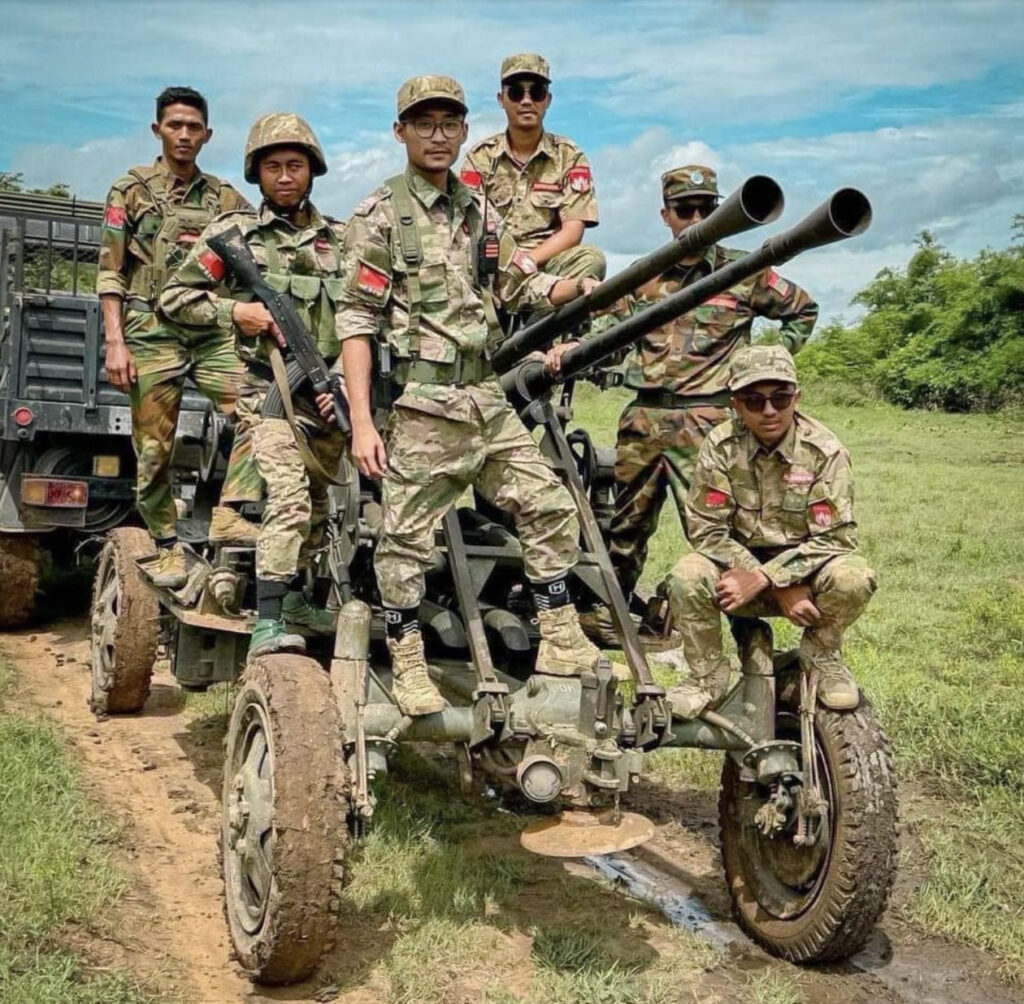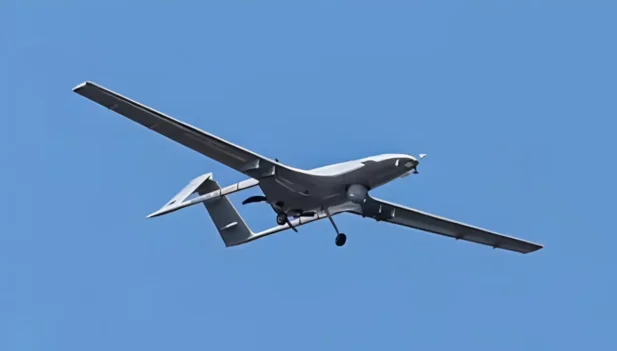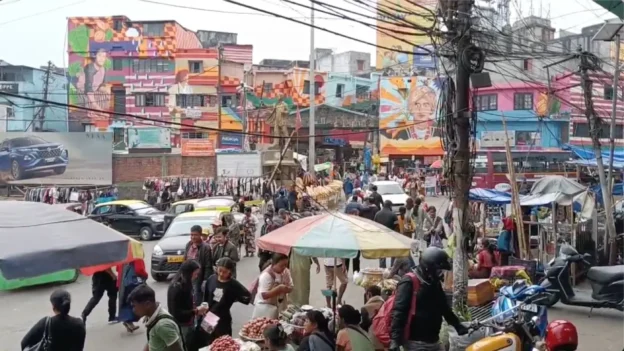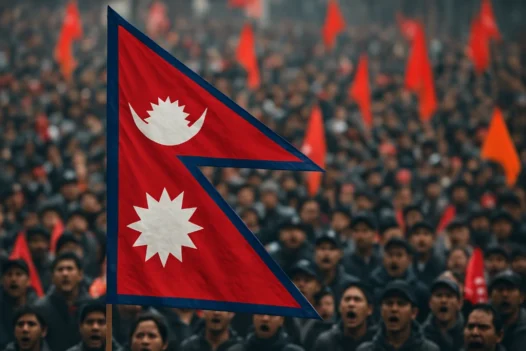The recent surge of offensives by rebel ethnic groups in Myanmar has intensified, reaching from the eastern coast to the northern Shan region and now the capital, Naypyitaw. On July 16, the People’s Democratic Force (PDF) is said to have launched an attack on the Naypyitaw air base, firing 107mm shock missiles that caused explosions, killing 34 junta personnel, including 4 air force officers. The assault also damaged two jets, a Y-12 propeller bomber, and caused a drone warehouse to collapse. Additionally, it damaged a weapons depot containing poison gas bombs and a repair hangar.
Following this, on July 17, the Mandalay PDF captured Sinku town, 100 km north of Mandalay city, seizing weapons at the police barracks. In retaliation, junta air force jets bombed parts of the town. By July 18, the Mandalay PDF had cleared the last two junta camps in Sinku Township, declaring the area entirely liberated.
In Northern Shan State, the Kokang army captured the junta’s 68th Battalion at Lashio’s entrance on July 14 and targeted the 507th Battalion next. Although a 4-day ceasefire was announced, fighting resumed, with junta forces bombarding the city and causing civilian displacement. Junta jets bombed the Kokang capital, Laukkai.
Amidst escalating conflict, China closed border crossings to resistance-controlled territory in northern Shan State as of July 17. The Burmese military junta reportedly withdrew troops from Pyin Oo Lwin, a key officer training site 65 km from Mandalay, possibly redeploying them to Meiktila and Naypyitaw. Local reports indicate military checkpoints in Pyin Oo Lwin have vanished.
The conflict has significantly impacted Myanmar’s economy, with reports of cash shortages and banks limiting ATM withdrawals. The military’s losses in Arakan have been particularly damaging, cutting off access to offshore oil and gas exploration along the Arakan coast, now largely controlled by the Arakan Army (AA).
Adding to the political dimension, the Chinese Communist Party has invited 17 representatives from four pro-junta “political parties” to Beijing for a political junket starting July 20. The situation in Myanmar continues to deteriorate, with ongoing military and economic instability.







